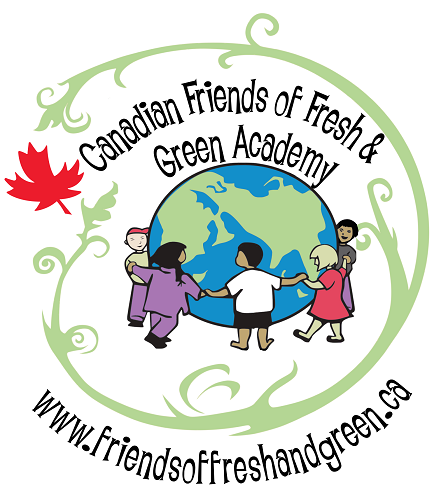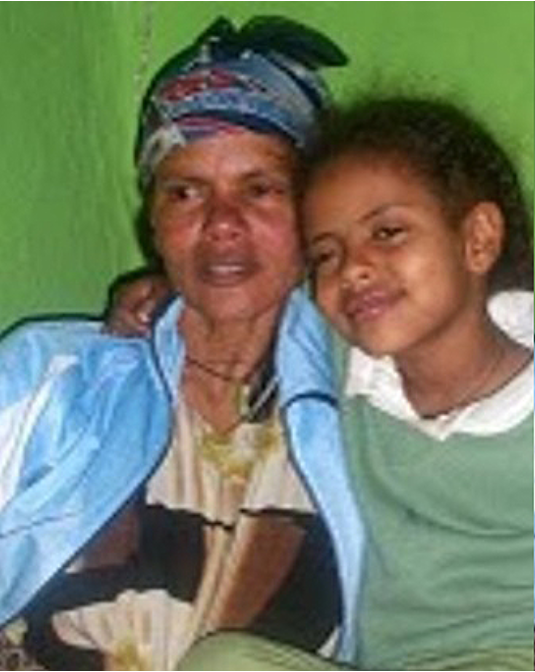Workay was born 35 years ago in the village of Gatu, about 260 km from Addis Ababa. She only has use of one of her legs, the other was crippled in childhood, most likely by polio. There’s no way to know, of course. Workay can’t remember a life where she could walk.
The Great Famine of 1984-1985 would have swept through Gatu when Workay was nine or ten years old. Eight million Ethiopians were affected, one million died. Workay had a daughter named Adist sometime in her middle teens.
Although the famine passed, life in Gatu became more and more difficult. Workay came to Addis, the “city of opportunity” when she was 24 years old to earn a living for them both by the only means she felt she could: as a prostitute. And so she became sick with the illness that, at the time, had only one name: aminmina, the “slim disease.” Later on it would come to be known as human immunodeficiency virus, HIV.
Six years ago she had another daughter, Bazawit. She doesn’t know who Bazawit’s father was, but she does know that Bazawit does not have HIV. That’s one blessing she’s thankful for every day.
The other is Fresh and Green. Muday heard about Workay and Bazawit from neighborhood friends and invited them into the Fresh and Green “family.” Bazawit started school and is now a thriving first-grader.
Workay joined the Mothers’ Cooperative, and crocheted shawls that were sold at the store. She earned enough to feed herself and afford rent in a small apartment in the neighborhood. Most importantly, her guaranteed nutrition ensured she could receive the antiretroviral (ARV) medication that saved her life.
Unfortunately, Workay’s HIV was fairly advanced before she started on the ARVs. During our visit, Muday took us to visit her. When volunteers are in town, Muday will “suggest” a vist when someone is in need. In December 2009, Workay became too ill to continue to work at the Mothers’ Cooperative. During the first week of April 2010, Workay went blind.
We walked, thorugh a torrential downpour, about half a mile from the school to Workay’s and Bazawit’s apartment. It’s a very small room painted a cheery lime green, with one electric lightbulb, a bed and a chair. A large poster of the Blessed Mother watches over Workay’s bed.
There were eleven of us that day: six volunteers, Muday, Workay and Bazawit, and Workay’s friend Alamsai, and her daughter Titthena. Alamsai has been keeping Workay alive, bringing food every day – an almost unimaginable sacrifice in a city where food is so scarce. Such is the sisterhood that exists between the mothers in the cooperative.
Between the six Americans, we had several hundred bir that we were able to give Workay. One hundred bir is around seven dollars. And yet, it was enough to buy food for the next several months.
Between the six Americans, we had several hundred bir that we were able to give Workay. One hundred bir is around seven dollars. And yet, it was enough to buy food for the next several months.
Workay shed tears of joy. Not for herself, but for her daughters and her friend Alamsai. All she wants is for her daughters to have a better life than she had. And there is some good news: vision has returned to one of her eyes.
Although she is bed-ridden, she no longer has to work as a prostitute. And Alamsai has money to bring her food, at least for the time being.
The Mothers’ Cooperative is not funded through the student sponsorship program. We are able to fund it only through the sales of the crafts the mothers make, and things that are donated to us that we bring to Africa for them to sell at their store.
We hope someday to be able to sell their wonderful jewelry online, but in the meantime, if you are interested in finding out more about donation opportunities for the mothers, please drop us an email or contact Trish Hack-Rubinstein at (01) 646.567.7672.


Recent Comments